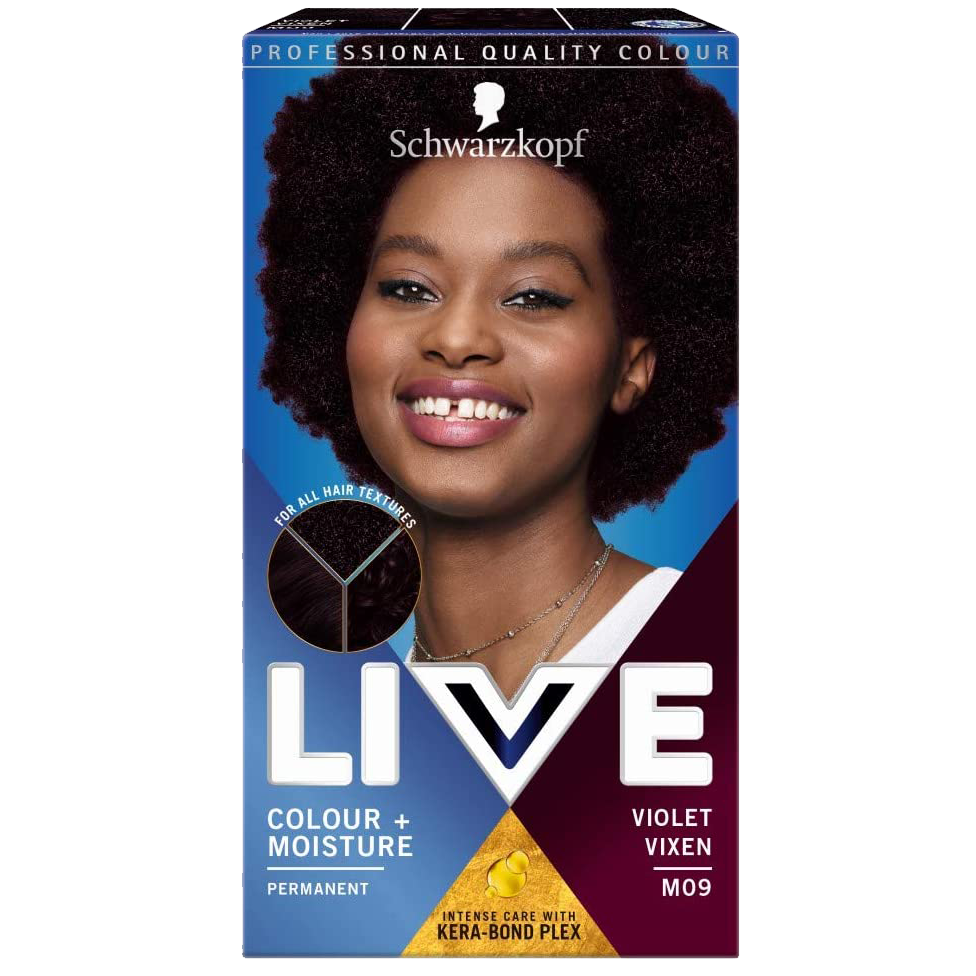My Purple Hair Has A Deeper Meaning To Me Than Making Myself Stand Out
Self-expression can come in so many forms and often means something different for everyone. From dance to makeup to poetry, whatever medium we use to express who we are and the values we align with can shape our lives and the lives of others. For dancer Rosey Lucci, her self-expression comes in the form of hair colour, makeup and style, all of which played a pivotal part in her journey to self-confidence – something Schwarzkopf LIVE Colour has helped with along the way.
AdvertisementADVERTISEMENT
Rosey’s hair is currently worn naturally in a cropped style, in Schwarzkopf LIVE Colour Violet Vixen (purple). But purple has a much deeper meaning for Rosey. "Purple definitely makes me feel more confident. But it means something different to me. The purple stands for Persistent Until Rosey Progressively Levels Everyday," she says. "When I had my hair purple during the lockdown, I had to come up with something that would keep me going and keep pushing me. Then I started posting more videos because I was like, I have to be persistent. I have to be determined to, you know, achieve something during this lockdown. That helped me grow my following and helped me to work with different artists."
Rosey first coloured her hair at the end of 2019 after she took inspiration from someone she followed on Instagram. "I wasn’t sure which colour I wanted to go so I bought this hair colour wax that had different colours – red, green, burgundy, grey, purple and blue. At the beginning, I think blue was the colour I liked the most. And somebody else was doing purple so I wanted to be different."
Rosey has not always been comfortable being bold. "When I was growing up, I was so scared to wear bright colours because in secondary school, I’d be bullied for it as a dark-skinned girl," says Rosey, who came to London from Ghana in 2013. "They’d tell me it didn’t look nice when I wore bright colours so I would always stick to black or white." The turning point came when Rosey went to a shoot one day and was asked to wear a bold outfit. "When I wore it, I liked it. And I thought, Why have I been punishing myself and listening to people, not wearing all these colours that could look amazing on me?"
AdvertisementADVERTISEMENT
"I’ve always been a shy person, since I was young. I didn’t have confidence at all," she admits. But during lockdown, everything changed. It was a chance for Rosey to say no to fear and express herself the way she knows best, through dance and creativity. "I would take my tripod, go in the middle of the road and just film myself dancing," she smiles, sounding calm and self-assured. "It just made me not care about what people think about me. People would walk past me and tell me, 'Oh, I love what you’re doing. Keep doing that.' It really helped my confidence. And from then, people started recognising me more."
Although she currently wears her hair natural, Rosey has a love for protective hairstyles and tells me that wearing braids takes her back to her childhood when she wore them a lot. Protective hairstyles have a longstanding history for Black people with kinkier hair types. The origins of braids, for example, can be traced back 5,000 years in African culture to 3500 BC. From artistic cornrow patterns to bantu knots, locs and wigs, these are styles that tuck the hair away, protecting delicate strands from environmental factors, snagging and manipulation.
Rosey isn’t the only entertainment-driven person in her family. Her brother is pursuing music and her grandmother was an artist back in the day. But growing up, Rosey’s mum wasn’t always keen on the idea of her forging a career as a dancer. "I was doing it behind her back! She only discovered that I was dancing because her friends told her. She told me I needed to go to school and focus more on my education rather than dancing. Later on, she started accepting it, maybe because her friends told her I was a good dancer. And she has been very supportive ever since that day."
AdvertisementADVERTISEMENT
Our conversation moves onto music across the African and Caribbean diaspora, specifically Afro jazz and dancehall – Rosey’s niche – and its ability to bring people together. Rosey particularly loves the energy and the stories behind it. "African dancing is very exciting," she tells me. "For example, the legwork. When people see the legwork, they always want to do it. I feel like it really unites people together. Because if, let's say I'm doing legwork, somebody sees it and they say, 'Oh that's interesting, I want to learn.' And then they start asking where legwork is from, the culture behind it and who created it. So I feel like it draws people in."
Moving forward, Rosey is dreaming big. She is focused on creating a community where dancers can train and socialise. "I’d really love to create that for the upcoming community who love dance and would want to pursue it, because I feel like that is very, very important."
AdvertisementADVERTISEMENT








